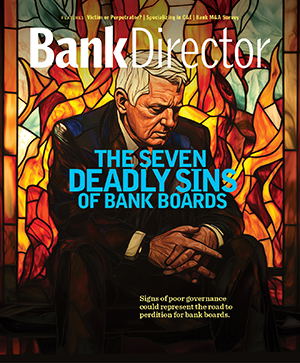
The Future of Banking: Crypto, Blockchain and Fintech
Brought to you by Mazars USA


This edition of the newspaper is now one of the most valuable crypto collectibles to date. It’s hard to deny the symbolism in the covert message encoded into the genesis block of the bitcoin blockchain.
That message signals problems in our modern fiat financial system while introducing a novel system that replaces centralized institutional trust with a system relying on decentralized cryptographic trust.
Today, bitcoin has celebrated its 10th birthday, despite critics predicting its doom since its inception. With bitcoin came another suite of technologies collectively known as blockchain.
Despite the actual word “blockchain” not appearing in the original white paper published under the pseudonym Satoshi Nakamoto in October 2008, it has undoubtedly become one of the most talked about buzzwords in technology and banking, as well as the larger world of finance.
Blockchain is generally considered to be a subcategory of distributed ledger technology (DLT), referring to its distributed architecture in which there is no central point of attack, making it less vulnerable to hacks, fraud and manipulation.
A quick online search of the word “blockchain” will yield a wide array of differing definitions, because there is currently no universally recognized definition—something the International Standards Association is working toward. One way to define blockchain is as a shared ledger designed to produce immutable records through cryptographic techniques that facilitate the processing of transactions and tracking of assets.
Part of what makes blockchain so attractive is that it’s considered a general purpose technology, according to the Massachusetts Institute of Technology, with many potential applications across industry verticals.
The primary application for the technology thus far has been within financial services—specifically, payments.
Banking on Blockchain
A study performed by Accenture found nine out of 10 banking executives saying their bank is exploring the use of blockchain in payments, the most prevalent use being cross-border transfers.
But reaping the promised benefits of blockchain will require “fostering an uncommon coordination among banks,” according to Accenture’s study. The value is in the network—in collaboration. Examples of these interoperable networks between banks and corporations globally are using private enterprise blockchains, or DLT, like R3’s Corda platform and Hyperledger fabric.
Major benefits from blockchain include lower administrative costs and shorter settlement times. One bank that has sought to offer these benefits to its clients by leveraging blockchain technology is Signature Bank. The New York-based commercial bank launched its own blockchain-based platform for real-time, 24/7 payments on Jan. 1, 2019.
Signature’s platform is interesting, considering some alternatives can take several days to clear and can be unavailable on weekends, for instance.
While many of the largest banks in the U.S. may be exploring blockchain and distributed ledger technologies, and filing a litany of patents, cryptocurrency is listed as both a risk and competitive threat in some of their annual reports. Meanwhile, forward-looking community banks have embraced cryptocurrencies and seen their balance sheets improve with it, such as San Diego, California-based Silvergate Bank.
“The Times They Are A-Changin”
Cryptocurrency is only one of many risks cited in the annual reports of major banks.
The rise in the number and nature of fintech firms has brought an explosion of innovation and competition.
Since the financial crisis, younger generations are growing up without the same relationship with banks that their parents and grandparents had, which has helped propel the growth of fintech companies focused on convenience and customized digital experiences.
This has paved the way for many fintech startups to excel in the financial services market. These companies are disrupting the status quo by providing a user experience that quickly adapts to the needs and desires of their customers.
With the genesis of bitcoin and blockchain, and the explosion in fintech, one thing is certain. In the words of Bob Dylan, the times they are a-changin’. And they’re changing in financial services on an unprecedented scale.

